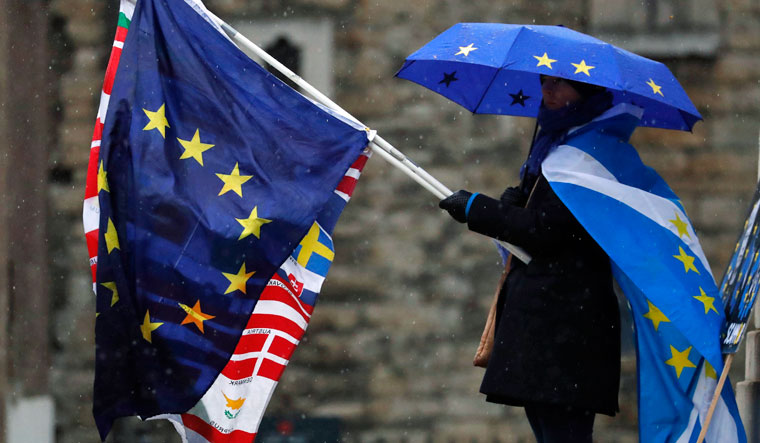British PM Theresa May and Leader of Opposition Jeremy Corbyn met to talk about breaking the deadlock over Brexit. Both parties showed flexibility, but did not manage to reach a conclusion regarding bringing a close to the current uncertainty around Brexit.
British MPs have passed a bill that forces UK to seek another extension to the Brexit process. It narrowly managed to yank Britain out of a no-deal Brexit.
The British government and the main opposition were to hold further crisis talks on Thursday after the MPs voted.
"We are disappointed that MPs have chosen to back this bill," a government spokesman said.
also read
- Belgium will investigate suspected Russian interference in upcoming EU elections
- Amid rumble of tractor protests, EU sets out more environmental concessions to farmers
- Red Sea attacks: EU launches maritime security mission to protect ships from Houthis
- Hungary blocks € 50 billion of EU aid for Ukraine
- India seeks to settle WTO import duty dispute with EU on ICT goods through free trade talks
"The prime minister has already set out a clear process through which we can leave the European Union with a deal and we have already committed to seeking a further extension.
May was assailed by hostile questions from her own side, in a sign of the anger over the change to her Brexit strategy. Britain is currently due to depart on April 12, but analysts doubt if May will be able to secure backing for her withdrawal deal by then.
While the EU is open to an extension, it would require May to take part in elections to the European Parliament on May 23. May has however been long-opposed to the idea .
"If passed, this bill would place a severe constraint on the government's ability to negotiate an extension and reflect this new date in UK statute books before April 12."
Corbyn told May that Labour wanted a customs union with the EU, access to its single market and raised "the option of a public vote to prevent crashing out or leaving on a bad deal".
If the talks between the government and Labour fail to reach a compromise that both can support, May hopes the two sides can come up with mutually acceptable options that would be put up for binding parliamentary votes.
Hardline Conservatives fear May's hand will be forced to seek a 'softer' Brexit, which would mean that Britain would still have some close ties to the EU.
"Why is a Conservative prime minister, who repeatedly told us that no deal is better than a bad deal, now approaching Labour MPs to blockade WTO Brexit when most Conservative MPs want us to leave the European Union with a clean break in nine days time?" Conservative MP Julian Lewis asked. Corbyn was asked by a senior member to seek a second referendum as part of any deal with the Prime Minister.


